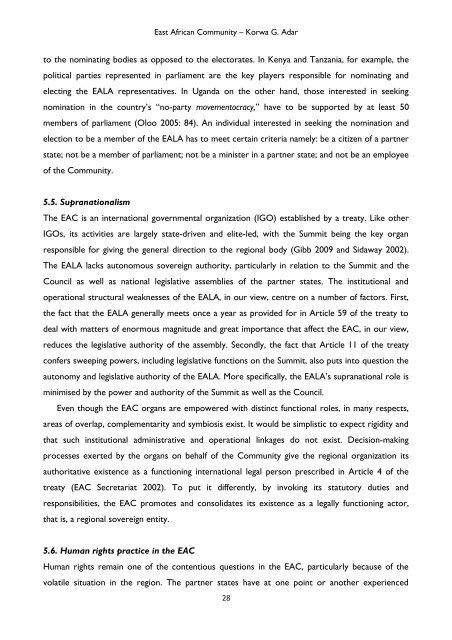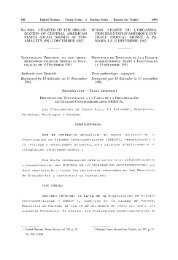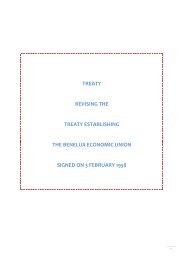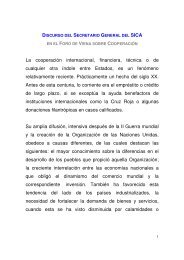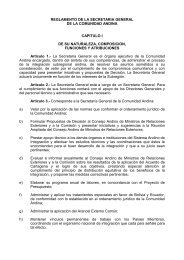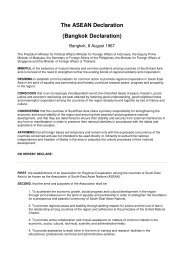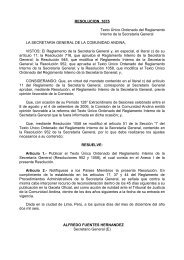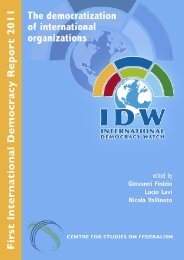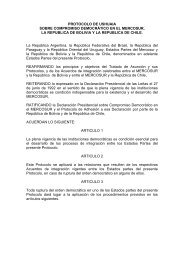Korwa G. Adar - International Democracy Watch
Korwa G. Adar - International Democracy Watch
Korwa G. Adar - International Democracy Watch
You also want an ePaper? Increase the reach of your titles
YUMPU automatically turns print PDFs into web optimized ePapers that Google loves.
East African Community – <strong>Korwa</strong> G. <strong>Adar</strong>to the nominating bodies as opposed to the electorates. In Kenya and Tanzania, for example, thepolitical parties represented in parliament are the key players responsible for nominating andelecting the EALA representatives. In Uganda on the other hand, those interested in seekingnomination in the country’s “no-party movementocracy,” have to be supported by at least 50members of parliament (Oloo 2005: 84). An individual interested in seeking the nomination andelection to be a member of the EALA has to meet certain criteria namely: be a citizen of a partnerstate; not be a member of parliament; not be a minister in a partner state; and not be an employeeof the Community.5.5. SupranationalismThe EAC is an international governmental organization (IGO) established by a treaty. Like otherIGOs, its activities are largely state-driven and elite-led, with the Summit being the key organresponsible for giving the general direction to the regional body (Gibb 2009 and Sidaway 2002).The EALA lacks autonomous sovereign authority, particularly in relation to the Summit and theCouncil as well as national legislative assemblies of the partner states. The institutional andoperational structural weaknesses of the EALA, in our view, centre on a number of factors. First,the fact that the EALA generally meets once a year as provided for in Article 59 of the treaty todeal with matters of enormous magnitude and great importance that affect the EAC, in our view,reduces the legislative authority of the assembly. Secondly, the fact that Article 11 of the treatyconfers sweeping powers, including legislative functions on the Summit, also puts into question theautonomy and legislative authority of the EALA. More specifically, the EALA’s supranational role isminimised by the power and authority of the Summit as well as the Council.Even though the EAC organs are empowered with distinct functional roles, in many respects,areas of overlap, complementarity and symbiosis exist. It would be simplistic to expect rigidity andthat such institutional administrative and operational linkages do not exist. Decision-makingprocesses exerted by the organs on behalf of the Community give the regional organization itsauthoritative existence as a functioning international legal person prescribed in Article 4 of thetreaty (EAC Secretariat 2002). To put it differently, by invoking its statutory duties andresponsibilities, the EAC promotes and consolidates its existence as a legally functioning actor,that is, a regional sovereign entity.5.6. Human rights practice in the EACHuman rights remain one of the contentious questions in the EAC, particularly because of thevolatile situation in the region. The partner states have at one point or another experienced28


